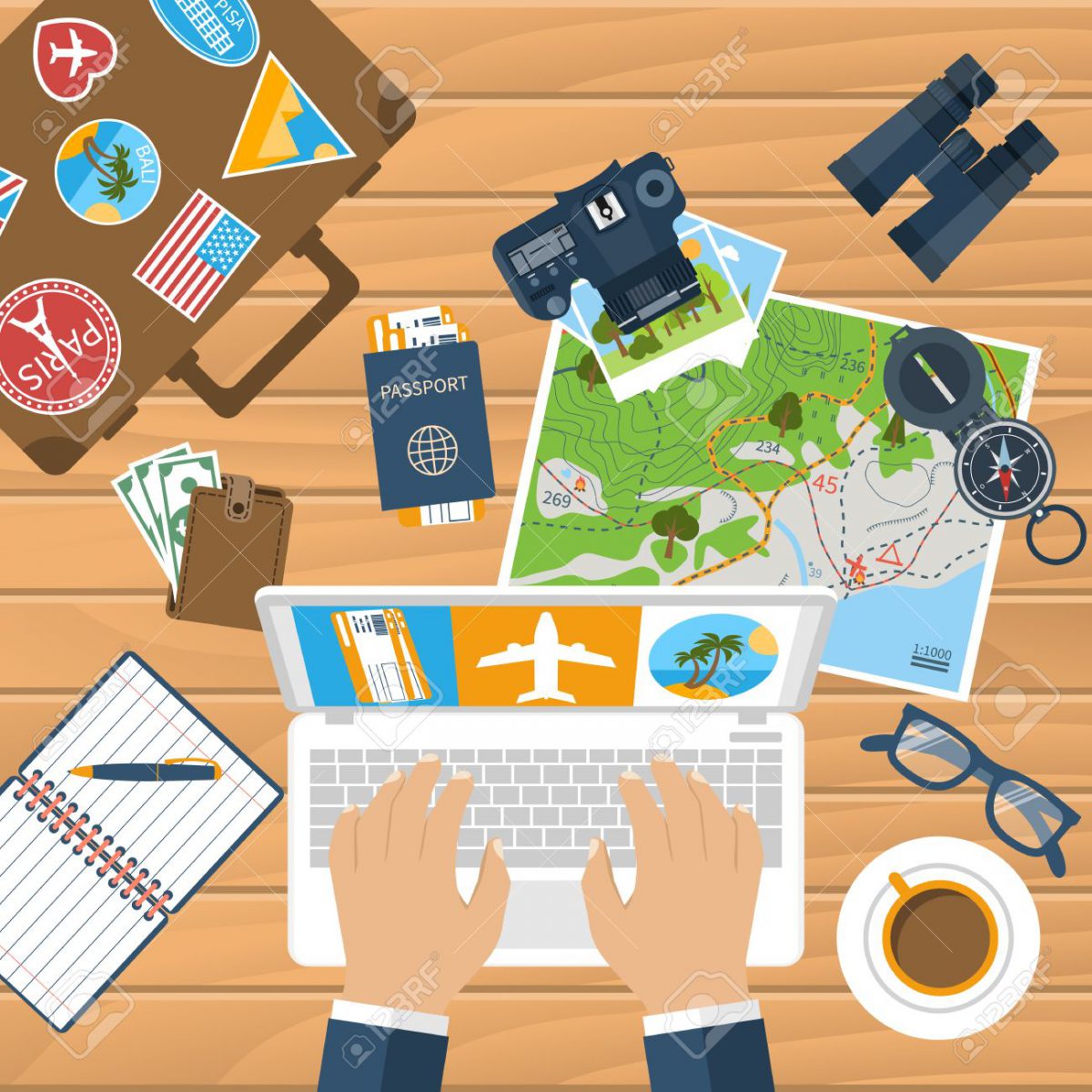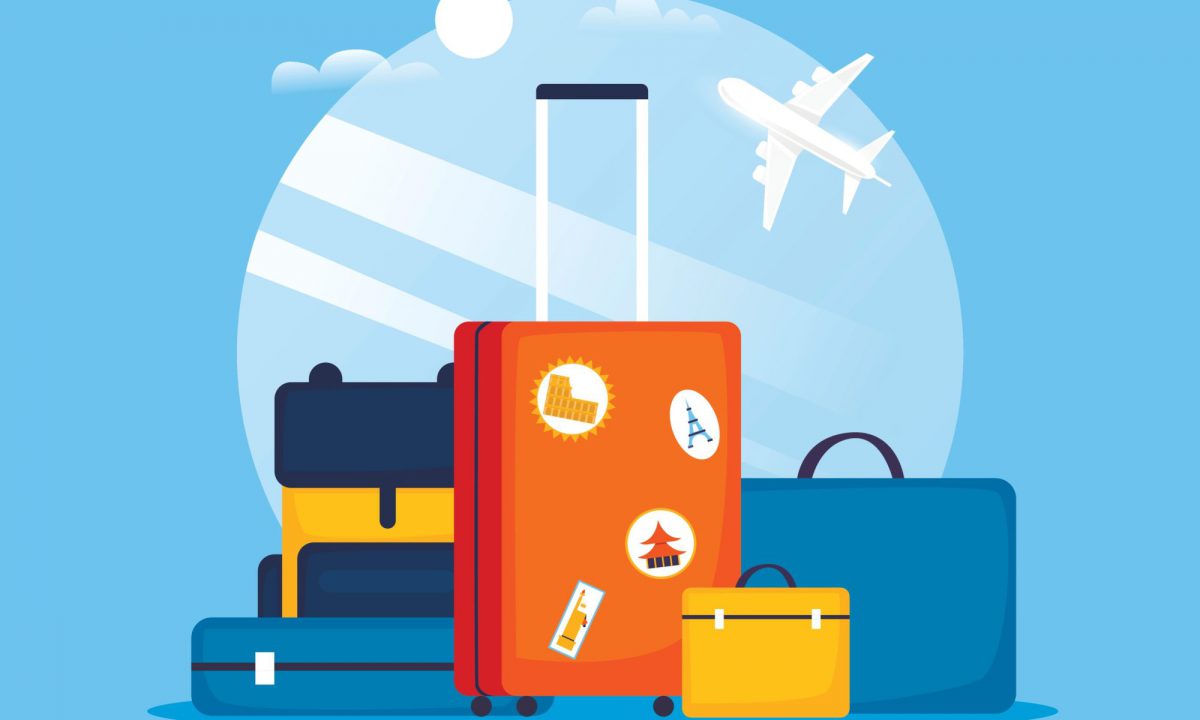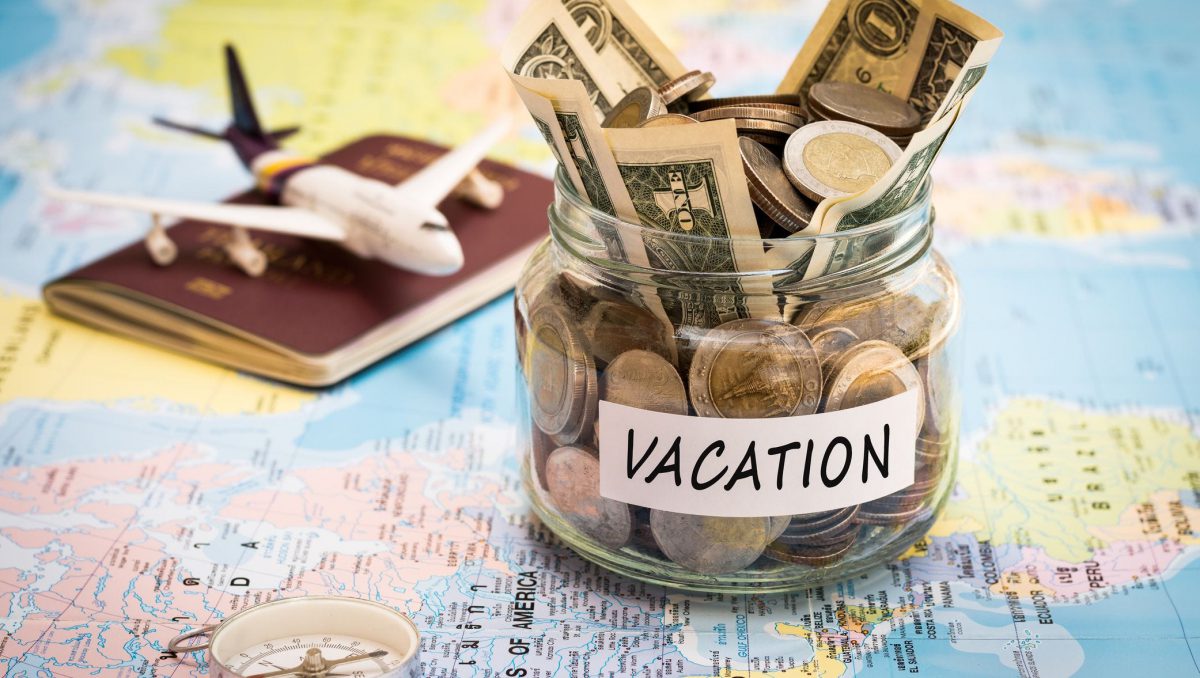For us, travel is not just about checking places off our list.
Our motto has always been “accumulate memories and moments, not just possessions”, and we like to do that through travel.
From our travel experiences and 7 years of travel blogging we’ve accumulated our fair share of top travel tips along the way and it was difficult to limit this to just ten!
1. Don’t Expect Things to Be Like They Are at Home
If you want everything like it is at home, then what’s the point of going anywhere?
Keep an open mind to learning and experiencing new things when you travel abroad, that includes trying new foods which can tell you a lot about a culture – and don’t be scared to eat the street food!
We travel abroad to experience different cultures, environments, and ways of thinking. So don’t shut yourself off to experiencing all a country has to offer.
If you travel with an open mind you can have a much more enriching experience.
There will be moments when other cultures will shock you. Don’t judge them. When this happens, sit back and say, “Isn’t that interesting, tell me more!”
2. Make Travel a Priority
If you want to travel more, you’ve got to make it a priority!
Seriously, if you don’t have enough money for travel yet you have a wardrobe full of designer clothes that you never wear, or a garage full of expensive toys collecting dust, then you’re not clear on your priorities and purpose.
We’ve been able to travel overseas consistently over the past 20 years because we made travel one of our top priorities.
We channeled most of our energy, focus, and finances towards travel.
Currently we don’t own a lot of stuff, but we sure have a lot of memories.
3. Spend More Time in Fewer Places
When you’re planning a trip, don’t try and go everywhere and do everything – that’s a recipe for burnout and blowing your budget!
Instead of racing from one end of a country to another, or tearing through 6 countries in 6 weeks, get to know a region well.
Constantly having to pack and unpack, spend time searching for cheap flights, deal with different time zones, currency changes, and even visa issues can lead to burn out.
And moving around to too many travel destinations can really eat into your finances.
Slow down and take more in. This way, you’ll get a better feel for a place.
Traveling with kids?
Plan for a slower pace than you would if traveling solo or as a couple. Be realistic about what you accomplish, especially when traveling with toddlers.
The less you feel you have to see and do, the more enjoyable and stress-free for everyone.
Understand that you will never have time to see and do EVERYTHING. And be okay with that.
4. Travel Does Not Have to Stop Once You Have Kids
We often get emails or have conversations with people we meet on the road who express that once they have kids their travel days are over!
Take it from us, family travel is possible and need not be a hassle. In fact, it can be one of the best experiences you have as a family!
Sure, we don’t travel around the world like we used to or party as much as we did pre-kids, be we obviously still travel and so do MANY other families – the family travel niche is alive and growing.
Over the past 20 years, our travel style has evolved from traveling solo, to traveling as a couple, to now traveling with our two daughters and many of our readers are inspired to follow in our footsteps.
Yes, family travel has its challenges and there are pros and cons of traveling with kids, but creating priceless memories is something to cherish!
There are valuable benefits to traveling with kids. They force you to evolve your style of travel, and in my opinion, usually for the better.
Top Tips for Traveling with kids:
There are three key essentials to having a stress free family vacation. 99% of the time your child will be irritated, cranky or screaming because they are either:
1. Bored
Choose a kid-friendly destination that has enough activities to keep them occupied, and bring along a few home comforts such as a stuffed toy, reading books, or activity packs which can be a lifesaver on flights and road trips.
2. Tired
Provide enough opportunities for them to rest and an environment for them to get a good nights sleep.
3. Hungry
Pack enough healthy snacks to keep them satisfied, especially on flights, buses and road trips. Long road trips or flights can leave kids feeling cranky and hungry.
When eating out, go out for breakfast or lunch as we find it easier to handle than dinner as they tend to be cheaper and more casual affairs. Plus by dinner time our kids are tired and can get a little crazy!
A hungry or tired kid is a grumpy kid, much like me actually!
5. Plan it Together
Sit down with all members of your family and talk about your trip.
The best way to get your kids interested and excited is to have them involved in the travel planning process.
Talk about:
- How many days will your trip be?
- What types of places will you visit: beaches, mountains, big cities, small towns?
- Do you want relaxation or adventure?
- When will the trip start?
Memorable trips are those where each member of your family gets to experience something they love.
Grab a few brochures or travel magazines and flick through the colorful pages. Everyone gets to choose a destination and activity they’d like to see and do.
Go through the list as a family, discuss the pros and cons of each and vote.
Next, jump online or on the floor with a big paper map and plot out your basic route with a highlighter, leaving room for flexibility.
When you plan a trip it’s important you choose a destination and activities that suit the interests of all family members. If your kids (or you) are bored or dislike a place it’s not the recipe for a memorable vacation.
6. Learn the Basics of the Local Language
Do not shout at the locals, they are not deaf, they probably just can’t understand you!
And NEVER complain that the people of the country you are visiting do not speak fluent English. Remember where you are!
Learning the basics of the local language is a great way to show respect and break down barriers. Plus a smile, a wave, and a friendly attitude can break down any barrier where language isn’t understood.
Get a phrase book, or an app, and make the effort to learn at least a few basic phrases.
It can make life easier for you, you’ll immerse yourself more in the culture, and the locals will respect you more.
7. Travel In Your Own Backyard
If you can’t afford to travel overseas or out of state, if you don’t have the time to go away for more than a few days or the thought of traveling makes you nervous, start off by traveling in your own backyard.
You don’t have to be rich to travel and it doesn’t have to involve long flights.
A great way to bring more travel into your life is simply by exploring new areas in your home city or state.
Start off by taking a day trip to a nearby town or a weekend getaway to the coast or mountains. Or simply explore your own town with new eyes.
- Visit a new cafe or market
- Go kayaking in a nearby river
- Climb a new mountain
- Visit a different park or beach.
- Grab a drink at a different bar
- Walk around a different neigborhood
After a while, you’ll be looking for bigger and longer adventures.
This strategy is one of the most overlooked and cheapest ways of bringing more travel into your life.
The benefits of local travel include:
- Less planning
- Less packing
- Les time away
- No jet lag or burnout
- Usually cheaper
8. Do the FREE Stuff
If saving money when you travel is a focus for you, then one of our best budget travel tips is to seek out all the free things to do.
Most of the time the best experiences in life are free, or extremely low cost.
There is absolute joy in the simplest of moments, such as swinging in a hammock while watching the sunset over the horizon.
Other free things:
- Take a walk or bike ride
- Swim at the beach or lake
- Climb a mountain
- Catch a magnificent sunrise
- Attend museums or tourist sites on free days or when they are discounted
- Play in the park
- Visit a market
- See a street fair or cultural event
We LOVE walking. It’s one of the best ways to get to know and appreciate wherever you are instead of racing around by car.
When you walk around you have time to stop and marvel at all the nooks and crannies.
You are better able to soak up the atmosphere and feel the energy. And walking is FREE and good for your health!
And walking is FREE and good for your health!
This is one of our favorite vacation tips!
Depending on the length of our trip and the destination, we tend to chop and change between accommodation styles.
If we are planning a trip that is longer than a weekend getaway, we prefer to stay in apartments or an Airbnb.
They offer several benefits:
- Access to a full kitchen (saves money on eating out)
- Separate bedrooms from the living room (easier to get the kids to sleep)
- You have your own laundry.
- You can book a 3 or 4-bed apartment and split the costs with another family or friends.
These extra facilities on a long stay can make your trip so much more enjoyable.
Apartments and Airbnb are also typically cheaper and more practical than a hotel – especially for families or small groups.
But if it’s only a short city stay, or we’re just traveling as a couple, we’re happy to stay in a hotel.
10. Talk to the Locals
One of our best travel tips and what we always do is talk to the locals!
They usually have the best travel advice and insider knowledge on what to see, do and eat in their own town.
It’s truly amazing what you will learn by striking up a casual conversation.
We ask simple questions like:
- Where can we get the best coffee?
- Where is the best spot to see the sunrise?
- What are the top three things you would show a friend from out of town?
You’ll find that the locals love sharing travel info and stories about their town and are more than happy to help you have a memorable visit!
Some of the best locals to talk to are those working behind the front desk in your hotel, or the bell boy. We always ask them for tips on where to eat, drink and explore.





